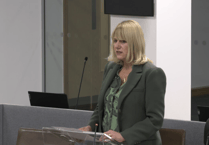Gwynedd Council will spend £1.6 million on electric vehicles, lights and heat pumps.
Cabinet voted in favour of a recommendation to prioritise more than £1,640,000 from its climate fund for three projects that will invest in the authority’s infrastructure and fleet.
This will reduce fossil fuels used to provide key services, reduce carbon emissions and save money and work towards their goal of becoming net zero carbon by 2030.
Over the next two years the council will spend an extra £1 million on 67 electric vehicles, saving the authority 64 tonnes of CO2 emissions.
They will invest more than £400,000 in a pilot scheme to try out new LED lights to replace traditional fluorescent tubes. A residential home, two leisure centres and three schools have been identified for this scheme.
The efficiency of the lights will be monitored throughout the pilot scheme to see if it is worth investing in similar lighting for other council maintained buildings.
They will invest £175,000 and receive £1.75 million from the Welsh Government to run another pilot scheme with eco-friendly heating technology at two schools and one leisure centre.
Councillor leader Dyfrig Siencyn said: “Cyngor Gwynedd has set a target to be net zero carbon and ecologically positive by 2030.
“By burning fossil fuels such as oil or petrol, we produce carbon which adversely affects the quality of the air that we breathe and contributes to climate change. As a local authority we have a responsibility to do everything we can to turn things around and change our ways.
“Since adopting our Climate Emergency Plan, we have been carefully planning how we can invest to save and what actions we can take that will have the greatest impact on our carbon emissions without adversely affecting the services we provide to local people and businesses within the county.
“I am very pleased with Cabinet's decision and that we are in a position to press ahead with these exciting projects, which will go hand-in-hand with our ongoing work to be more economical with our energy consumption and to cut down on costs.
“In a geographical large and rural county like Gwynedd, our officers need access to vehicles to carry out their work and the authority has a large number of buildings. So, it's good news that we're able to invest in these three projects, with room to grow and adapt according to the results we see.”





Comments
This article has no comments yet. Be the first to leave a comment.